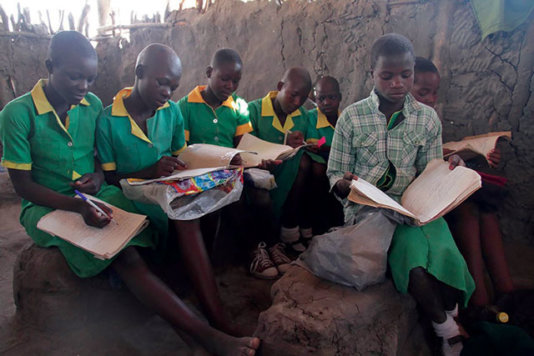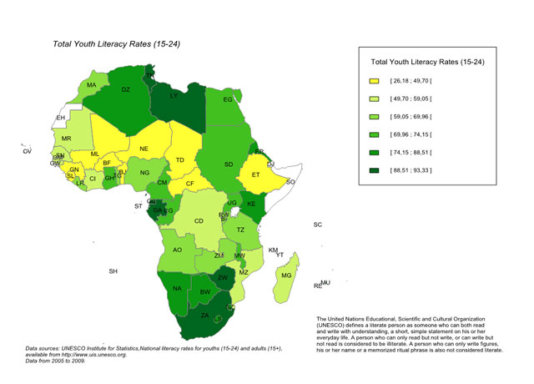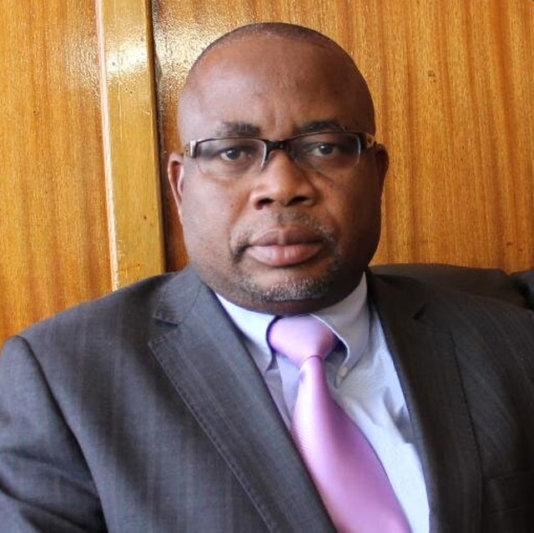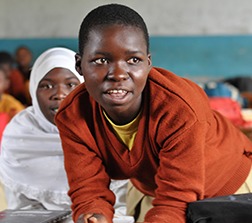- About
- Topics
- Picks
- Audio
- Story
- In-Depth
- Opinion
- News
- Donate
-
Signup for our newsletterOur Editors' Best Picks.Send
Read, Debate: Engage.
| January 06, 2015 | |
|---|---|
| topic: | Child rights |
| tags: | #Gokwe-South, #human right, #literacy, #Paul Mavima, #Zimbabwe |
| located: | Zimbabwe |
| by: | Henri-Count Evans |
According to the Zimbabwe Statistics Agency (ZIMSTAT) national census report of 2012, Gokwe-South district has 10 administrative wards and a total population of 305 982.
Surprisingly, only a few children attend secondary school. A meagre 3 454 children are enrolled in the district’s 22 secondary schools compared to the 26 485 pupils enrolled at the 50 primary schools in the district.
Most pupils drop out of school just after completing their primary education, with the majority of parents in the district citing poverty, long walking distances to the nearest secondary schools and financial constraints as the main reasons behind the low turn-out of children in secondary schools.
Parents in the district struggle to keep their children in school due to poverty as they fail to raise the required school fees for their children. Lawrence Dube*, a village leader in Charama village, said that the children in their communities fail to access full primary and secondary education mainly due to financial problems.
“The children have school fees problems and at times fail to register for the public examinations offered by the Zimbabwe School Examinations Council,” lamented Dube.
The Member of Parliament for the Gokwe-Sengwa constituency, Paul Mavima said that non-payment of school fees was a growing impediment to the educational progress of the children in the area.
“Parents have problems raising school fees for their children and this is due to the poor cotton prices being recorded nowadays” he explained.
The Gokwe-South district is highly dependent on cotton farming, but disappointingly the producer prices have been subdued for the past five years, further impoverishing the livelihoods of local communities.
The majority of children go to school on empty stomachs, clad in torn clothes and bare-footed. Despite these conditions the pupils walk long distances of between 15 to 20 km to and from school.
“Most children walk long distances to school and this affects their performance as most of their time is spent walking to and from school,” said Gamuchirai Shumba*, a secondary school teacher in the district.
“Due to the long distances they have to walk to get to school, some children fail to catch up with time and miss their first lessons. The children are tired throughout the lessons and this has an impact on their performance. Some children have dropped out of school due to the long distances,” reiterated Shumba.
Angela Nkomo, a Form Three pupil at one secondary school, described her learning experience as a mammoth task.
“It takes about 3 hours to get to school... I normally get home very late in the evening and household chores will be waiting for me. I will already be tired from walking and I find it so difficult to study and do my homework. I use paraffin lights for reading and sometimes we won’t be having supplies so I can’t read at home,” she explained.
Classrooms without roofs, window frames without window panes, door frames without doors, and classrooms with rough-cracked floors is the closest and clearest description of some of the infrastructural conditions that define and characterise most schools in the district.
The shortage of classrooms and furniture is a perennial challenge at most schools. “Sometimes pupils in different grades are bunched together in one classroom. In some instances other pupils learn whilst sitting on the floor because the chairs are not enough for every child,” said Nomalanga Moyo*, a primary school teacher in the district.
“There are no facilities to cater for the physically disabled children in most schools and as a result they are robbed of their basic right to education. The schools are also less equipped to cater to their needs, meaning that the children get a sub-standard education,” noted Gamuchirai Shumba.
The hygiene conditions at most schools are despicable. The toilets used by pupils seldom get to be cleaned due to the sheer lack of closely situated sources of water.
When this reporter visited the district, urine and faeces could be seen on the floors of some toilets at several primary schools, exposing children to high risks of contracting cholera, diarrhoea, bilharzia and typhoid.
According to Paul Mavima, the biggest challenge in the district is infrastructure, especially the dilapidated teachers’ houses, classrooms, and toilets. He further acknowledged that most schools had challenges in getting access to clean water.
The district has failed to attract fully qualified teachers due to the pitiable working conditions.
For most schools in this part of Zimbabwe, electricity and piped water are things one never dreams of. Teachers have to make do with firewood and rely on the water supplies from boreholes as far as 4 km away.
Another problem is that of the rising cases of child marriages that are rampant in the district with most cases going unreported. Girls in the district get married before the age of 18 and fail to proceed with their education.
A villager from the district who requested anonymity said early marriages are widespread in areas such as Mvurayapenya, Tachiona, Meso, and Bheura around Ngomeni Secondary school and girls have been the major victims.
“Several young girls aged between 13 and 15 years were married off this year alone and nothing has happened to the culprits,” he said.
“Early marriages are mainly due to poverty, and parents usually force their children into these marriages in order to get food. At one secondary school, (name withheld) about 14 girls in Forms One and Two got married in 2014. At one primary school, (name withheld) a pupil doing her Grade Four got married,” he added.
According to Paul Mavima, the government is aware of the presence of child marriages in this area.
“Less attention is given to the girl child in Gokwe-South. I am sure we have cases of early marriages,” he said.
Unwanted pregnancies and early sexual experiences are rife in these parts, as most girls are impregnated at a very early age. Instead of advancing to secondary school after completing their primary school education, most girls get married.
The Gokwe-South district is presented with high risks of the community’s children contracting sexually transmitted diseases. This results from their lack of knowledge and negotiating power during sexual intercourse with their much older partners.
School children in need of health attention have a torrid time in accessing clinics as the district has a total of only ten health clinics with a combined staff compliment of 15 registered general nurses. Three administrative wards in the district have no clinics at all.
The roads in the district are in a sorry state and this has impacted negatively on the availability of transport for the villagers and the teachers.
It is a case of hoping against hope for the children that are growing up in such squalid conditions. The children grow up not to be doctors, teachers, architects, engineers, journalists, academics or entrepreneurs, instead they become cotton farmers fixed in the rural areas by their unfortunate lack of access to the basic human right to quality education.



By copying the embed code below, you agree to adhere to our republishing guidelines.
